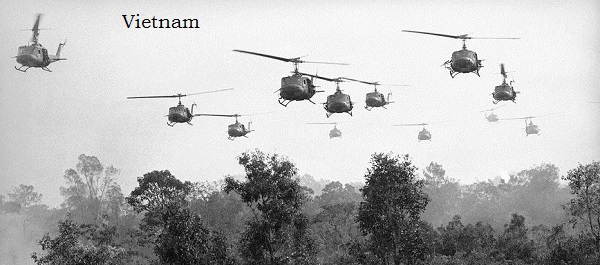


Cerro Gordo County Iowa
Part of the IAGenWeb Project
|
The Globe-Gazette
 The Globe Gazette will publish 50 stories — starting on Veterans Day — about North Iowa’s Vietnam Veterans. The stories will appear on Sundays and Wednesdays. We’ll culminate this "They Served With Honor" project with a special section (publishing on the day before Memorial Day) that will include all of the profiles. It will be great keepsake and resource for family members, educators and part-time historians.
by Meredith Colias, February 04, 2016
"I was going to grow up to be a Marine," he said via phone. "We'd play army almost every day," the Mason City native said of his childhood friends. "I had a wooden stick that was my tomahawk, was my machine gun." Now 76 and living in Tamarack, Florida, as a young man college was not his calling. The military's offer of order and structure appealed over the temptations of college life. "I was not what you call a stellar student," he said. "In those days, you were a sissy if you got good grades." A lot of his free time was spent "partying and chasing girls and going to football games," he said. "I'm just wasting my parents' money, so I thought I'll join the Army." By 1961, he had enlisted and was attending officer training school. He loved the structured environment, opportunity to meet people from all walks of life and ability to learn whatever job he wanted. "The Army kept on saying, 'Yeah, I will send you to that school," he said. Over the course of a 20-year career in the service, Melendez, a retired major, served in several capacities including attending infantry, ariborne and Ranger schools. He went to Vietnam as a helicopter pilot first in 1966 before returning for a second tour in 1969. He logged more than 1,000 combat flying hours transporting and extracting soldiers from combat zones, eventually earning a Distinguished Flying Cross. His helicopter was hit three times by enemy fire, he said. The second time, it was "pitch dark out in the mountains," he said. "You could see all the tracers out there. It looked like the Fourth of July." Coming home between tours as an officer, he said he didn't feel the same sense of being ostracized in the same way commonly felt by enlisted soldiers. "Professional soldiers, which I considered myself to be at the time, you have a different perspective," he said. "My second (time) I came (home), I went to San Francisco . . . I was there at the time when there were protesters. "Never forget the inhumanity of war and the men who we ask to send to war," he said. For combat, "There's no way to anticipate what that's going to be like," he said. "It was a very intense experience in terms of requiring your attention and focus all the time. "We were very cocky back then," he said. "And for the troops (we flew) to support them, so we never quit. "You didn't think about politics of what (you were doing), because soldiers are not political," he said. "The guys that were there, we know what we did. We did our duty," he said.
Photograph courtesy of Globe-Gazette
|